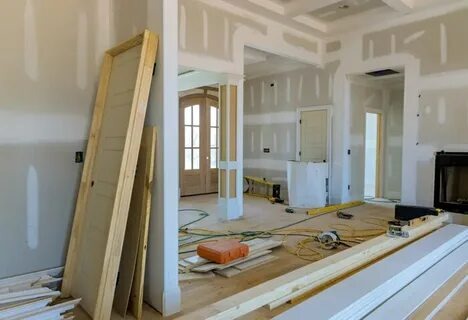Introduction
A major home renovation can be exciting, overwhelming, and transformative all at once. Whether you’re dreaming of a modern open-concept kitchen, expanding your living space, or giving your entire home a facelift, it’s a big undertaking — and one that deserves careful planning.
Too many homeowners jump into renovations without fully understanding the scope, timeline, or hidden costs involved. The result? Missed deadlines, budget blowouts, and a lot of unnecessary stress. But with the right approach, your renovation can go smoothly and deliver results you’ll love for years to come.
Before swinging that sledgehammer, here’s everything you should know before taking on a major home renovation.
Everything You Should Know Before Taking On a Major Home Renovation
1. Start with a Clear Vision and Goals
First and foremost, define what you’re trying to achieve. Are you upgrading for aesthetics, function, resale value — or all three? Do you want to open up space, improve energy efficiency, or bring your home into this decade?
Write down your renovation goals and prioritize them. When unexpected expenses come up (and they will), having a clear hierarchy of needs helps you stay focused on what matters most.
Pro tip: collect inspiration photos, Pinterest boards, or samples to help communicate your vision to contractors and designers. The clearer your vision, the easier it is to bring it to life.
2. Understand the Scope of Work
Major renovations often include multiple areas of the home kitchens, bathrooms, floors, structural changes, or even additions. Understanding how these areas impact one another is critical.
Some work may require permits or structural approvals. Plumbing and electrical changes will need licensed professionals. If you’re altering walls, there may be hidden surprises (like outdated wiring or plumbing behind them) that add time and cost.
This is especially true in kitchens, where layout changes, appliance upgrades, and cabinetry installations often require a specialized kitchen remodel contractor who understands the complexity of high-traffic, high-function spaces. Hiring someone experienced in kitchen-specific remodels can help you avoid common layout pitfalls and expensive rework.
3. Set a Realistic Budget: Then Add Extra
It’s not uncommon for renovation projects to go over budget — especially if you don’t factor in contingency costs. Unexpected issues (like mold, structural damage, or outdated electrical work) can add thousands to your project.
To stay on track:
- Get detailed quotes from multiple contractors
- Include a 10–20% buffer for unforeseen expenses
- Prioritize spending on high-impact areas (like kitchens and bathrooms)
Also, consider how long you’ll be in the home. If you’re remodeling to sell, ROI (return on investment) should play a big role in your decisions. But if this is your “forever home,” you might invest more in comfort and customization.
4. Choose the Right Professionals
Your project is only as successful as the people you hire. From designers and architects to tradespeople and contractors, each role is essential to the outcome of your renovation.
Start by reading reviews, checking portfolios, and asking for references. Communication, reliability, and experience should be your top considerations.
If you’ve been searching for remodeling services near me, focus on those with proven track records, especially for projects similar to yours. Local contractors will also be familiar with building codes and permitting requirements in your area, which can save you significant time and hassle.
5. Understand the Timeline and Living Arrangements
Depending on the scope of the renovation, you may not be able to live in your home during parts (or all) of the project. Dust, noise, and lack of access to kitchens or bathrooms can quickly wear thin — especially if you have children or pets.
Ask your contractor for a detailed timeline that includes demo, construction, inspection, and cleanup phases. Then, prepare for some delays. Weather, backordered materials, or permit issues can push things off schedule.
If possible, have a temporary living plan or at least a “safe zone” in the house where you can escape the chaos.
6. Don’t Overlook Function for Style
It’s easy to get caught up in beautiful Instagram inspiration or showroom samples, but don’t let style overpower practicality. A stunning design is worthless if it doesn’t work for your lifestyle.
Ask yourself:
- Is there enough storage?
- Are walkways wide enough?
- Will this layout make life easier?
This is especially important in kitchens, where functionality is king. A skilled kitchen remodel contractor will help balance form and function by designing a layout that improves workflow and maximizes efficiency while still looking great.
7. Plan for the Unexpected
No matter how detailed your plan is, surprises happen. Maybe your walls hide plumbing from the 1950s. Maybe the flooring delivery is delayed. Maybe the contractor finds structural damage under your bathroom tile.
The key is to expect the unexpected emotionally and financially. Flexibility, patience, and good communication with your renovation team go a long way.
8. Choose Materials Wisely
Choosing the right materials can affect the look, feel, and durability of your renovation. Research different options, considering quality, cost, and style. Don’t just pick the cheapest materials—sometimes spending a bit more means better results that last longer.
Ask your contractor for recommendations based on your budget and goals. Samples and showrooms can help you visualize how materials will look in your home.
9. Stay Flexible but Focused
While it’s important to have a clear plan, renovations often bring surprises. You may need to make changes along the way. Being flexible will help you handle these changes without frustration.
At the same time, keep your goals in mind. Don’t let small changes add up to major cost overruns or delays. Work closely with your contractor to make smart decisions.
10. Monitor the Work Regularly
Stay involved during the renovation by visiting the site regularly. This helps you see progress, ask questions, and catch problems early. Regular communication with your contractor is key to making sure the work matches your expectations.
If you notice anything concerning, don’t hesitate to speak up. It’s better to fix issues early than to wait until the project is finished.
11. Think About Long-Term Value
A major renovation is an investment. Consider how your changes will affect your home’s value in the future. Focus on improvements that add comfort and style but also increase resale value.
Popular upgrades like updated kitchens, bathrooms, and energy-efficient features often provide good returns. Talk with real estate experts or your contractor about which changes are most valuable in your area.
Final Thoughts
A major home renovation is a big commitment, but it can also be incredibly rewarding when done right. The keys to success? Clear goals, a realistic budget, hiring qualified professionals, and staying flexible when plans need to change.
Whether you’re starting with a kitchen transformation or searching for remodeling services to overhaul your entire home, take the time to plan thoroughly. Your future self — and your beautifully remodeled home will thank you.












